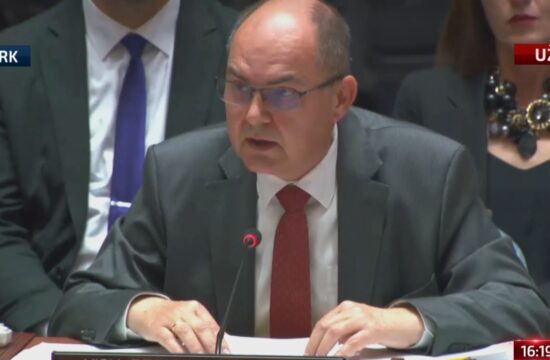EU enlargement in the Western Balkans “has always been seen as something negative” in some parts of Europe and in order to change this, a “more positive narrative” must be established on the issue among the EU population, which also depends on the behaviour of countries that wish to join, the Director of the Paris-based Jacques Delors institute, Sebastien Maillard, told N1.
Joining the EU is like joining a club, all member states must agree for a country to join it and the more members there are the more difficult it becomes to reach such a consensus, Maillard explained.
“It is true that France, along with the Netherlands, didn’t want the accession negotiations to start the same way they had been done in the previous rounds because there is a sense that sometimes it had been done too quickly,” he said, arguing that this represented “a push not to block, but to change the way it is done.”
“An issue there, which is also true for Bosnia, is that for the enlargement process to be well accepted by the population of the existing member states.
Unfortunately, and this is something that I find difficult in my country, France, is that enlargement to the east and the Balkans in general, has always been seen as something negative,” he said.
Maillard said that he believes such enlargement would make the EU more powerful, a bigger market and “a more attractive asset in the world.”
He argued that what is needed for this to change is a “positive narrative” in Europe on the issue, “and then politicians in Europe will be more keen to go on with this enlargement.”
“We have a shared fate,” he said, arguing that Western Balkan countries truly belong in the EU.
The obligation to conduct such promotion of enlargement lies with both Western Balkan political leaders and those of the EU, he said, proposing that it should be phrased a “uniting the continent.”
But it is also up to how candidate countries behave, he said.
“If you are too much looking towards China, as Serbia is doing for instance, this could become problematic,” he explained.
“The way countries behave shows their willingness to join,” he said.
Maillard also commented on the alleged Slovenian non-paper on drawing borders in the Western Balkans.
The document, published by the Slovenian news portal necenzurirano.si, caused an uproar as it proposes Kosovo joining Albania and Serbia annexing parts of Bosnia’s Serb-dominated Republika Srpska (RS) entity, while the mostly Croat-populated parts of southern Bosnia and Herzegovina would become part of Croatia.
According to the Slovenian news portal, the country’s PM, Janez Jansa, sent the document to Brussels. Jansa denied those claims.
Maillard said he would not pay too much attention to non-papers as they are only “reflecting the position of a particular country” as negotiations on such matter take place on “a much higher scale.”
EU policies towards the Western Balkans are decisions that have to be taken by all 27 member states so “I wouldn’t bother too much about a very particular single paper that, perhaps, is a way to put some pressure to raise some issues.”
The full interview can be seen in the video above.





Kakvo je tvoje mišljenje o ovome?
Budi prvi koji će ostaviti komentar!